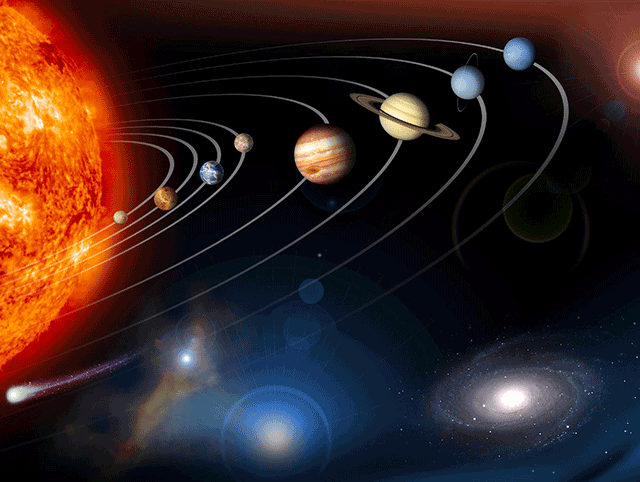Planet Names
The planet Earth on which we live is part of the solar system. The Sun is a star at the centre of the solar system, and eight planets and other bodies revolve around it. The eight planets, in order from the Sun, are:
- the inner planets:
Mercury, Venus, Earth, Mars - the outer planets:
Jupiter, Saturn, Uranus, Neptune
This section looks at the origins, meaning and usage of their names.
Mercury
Mercury, the fastest planet, named after the Roman messenger to the godsVenus
Venus, the brightest planet, named after the Roman goddess of love and beautyEarth
Earth, our own planet, named after the soil beneath our feetMars
Mars, the red planet, named after the Roman god of warJupiter
Jupiter, the largest planet, named after the Roman king of the godsSaturn
Saturn, thought by the Romans to be the slowest planet, named after their god of timeUranus
Uranus, named after the Greek god of the sky and father to SaturnNeptune
Neptune, a deep sea-blue colour, named after the Roman god of the seaPreviously, the "dwarf planet" Pluto (beyond Neptune) was considered to be a full-fledged planet and the solar system was said to have nine planets. Pluto had been discovered as a "new" planet in 1930 but was effectively downgraded by the International Astronomical Union in 2006.
